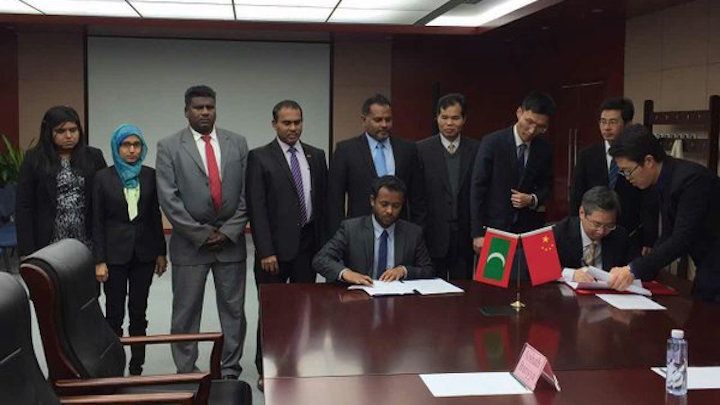World Bank blacklisted Chinese company awarded Maldives bridge project
The CCCC Second Harbour Engineering company was sanctioned in 2009 and barred from engaging in any road and bridge projects financed by the World Bank Group until January 2017.

16 Nov 2015, 09:00
A Chinese contractor chosen for the US$200 million Malé-Hulhulé bridge project was blacklisted by the World Bank over fraudulent practices during a road improvement project in the Philippines.
The CCCC Second Harbour Engineering company was sanctioned in 2009 and barred from engaging in any road and bridge projects financed by the World Bank Group until January 2017.
Housing Minister Dr Mohamed Muiz said at a parliamentary committee today that the bidding process for the ‘China-Maldives Friendship Bridge’ was conducted by the Chinese government last week.
CCCC Second Harbour Engineering was chosen from among three companies shortlisted by the Chinese ministry of commerce. A team of 11 experts evaluated the bid proposals.
Become a member
Get full access to our archive and personalise your experience.
Already a member?
Discussion
No comments yet. Be the first to share your thoughts!
No comments yet. Be the first to join the conversation!
Join the Conversation
Sign in to share your thoughts under an alias and take part in the discussion. Independent journalism thrives on open, respectful debate — your voice matters.




